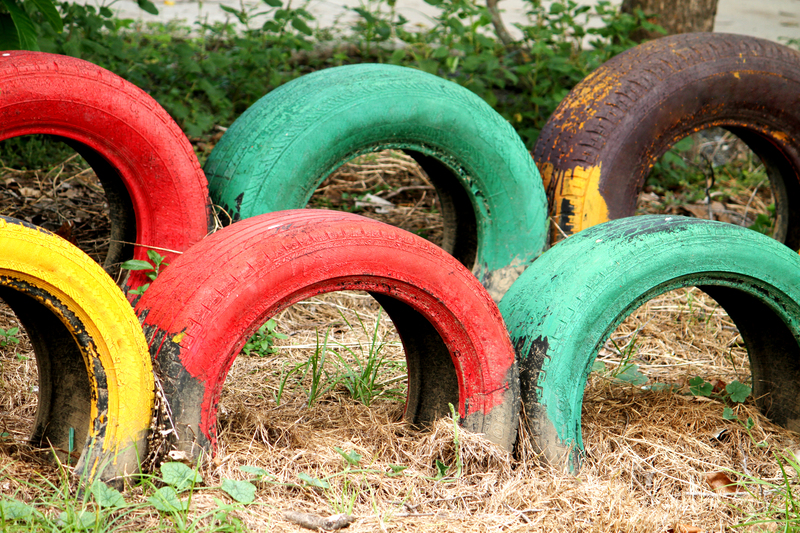Recycle Fashionably: Transform Old Clothes into New Trends
In the fast-paced world of fashion, trends come and go, but waste continues to mount. What if you could give your old clothes a second life by transforming them into unique, stylish pieces? Welcome to the world of fashionable recycling! This comprehensive guide will show you how to recycle your wardrobe creatively, reduce your environmental impact, and set your own trends by upcycling.
Why Recycle Fashionably?
The fashion industry is responsible for a massive amount of global waste every year. Recycling clothes is not just an environmentally responsible choice--it's an opportunity for creativity and self-expression.
Environmental Benefits
- Reduces landfill waste: Textile waste contributes millions of tons to landfills annually.
- Conserves resources: Recycling clothes saves water, energy, and raw materials needed for new garments.
- Prevents pollution: Fewer new clothes means less chemical usage and fewer emissions during production.
Personal Benefits
- Unique Style: Stand out with one-of-a-kind clothing items you've made or remixed yourself.
- Cost Savings: Updating your wardrobe is often cheaper than buying new clothing.
- Feel-Good Factor: Creating new trends from old fashion is empowering and satisfying.

Getting Started: Assess Your Wardrobe
Before you start transforming, take stock of your wardrobe. Pull out pieces you no longer wear, whether they're out of style, don't fit, or are damaged. Consider:
- What pieces could be reimagined with slight alterations?
- What fabrics or patterns excite you?
- What current trends could your clothes mimic or inspire?
Organize Clothes for Upcycling
Organize by:
- Color
- Fabric type (denim, cotton, wool, synthetic)
- Items (shirts, jeans, dresses, accessories)
This makes it easier to envision new designs and combinations.
Creative Ways to Recycle Fashionably
Ready to unleash your creativity? Here are some innovative methods to transform old clothes into new trends:
1. Turn Jeans Into Denim Shorts or Skirts
Old jeans are a classic upcycling project:
- Cut them into shorts for summer trends.
- Sew two pairs together for a funky patchwork denim skirt.
- Add lace, paint, or patches for a customized look.
2. Create Statement Accessories
- Use fabric scraps to make headbands, scrunchies, or even bold fabric necklaces.
- Pocket squares can be fashioned from patterned blouses or dresses.
Accessories not only reduce waste but also offer a unique, personal touch to any outfit.
3. Refashion T-Shirts into Trendy Tops
- Crop old t-shirts for a trendy, casual look.
- Turn sleeves into tank tops or off-the-shoulder pieces.
- Use bleach or fabric paint to create tie-dye or graphic designs.
4. Combine Multiple Pieces
Mix different clothing items for true innovation:
- Sew two shirts together for a color-blocked style.
- Patchwork: Use parts of different garments to create a new item, such as a multi-patterned sweater or skirt.
5. Add Embellishments
- Sew on patches, beads, sequins, or embroidery for an instant update.
- Iron-on transfers or fabric paint can turn a plain shirt into stylish, wearable art.
Trending Upcycling Ideas to Recycle Clothes
Recycled fashion is gaining traction worldwide, with influencers and designers promoting the art of upcycling. Here are some trending ideas:
Patchwork Creations
Mix and match patterns from different clothes to create unique dresses, jackets, or pants. The 'quilted look' is not just comfy but highly fashionable.
Vintage Remixes
Blend vintage pieces with modern elements: turn a long retro dress into a trendy midi skirt or combine old trench coat pieces with denim for a cool, layered look.
Zero-Waste Accessories
Small scraps from larger projects can become stylish bags, belts, or jewelry. No piece of fabric should go to waste!
Step-by-Step Guide: Upcycle Your Own Clothes
1. Gather Materials and Tools
- Old clothing items
- Sewing kit (needles, thread, scissors, fabric glue, pins)
- Decorative accessories (patches, buttons, beads)
2. Plan Your Design
Decide what you want to create and sketch your design. Consider color schemes, current trends, and your personal style.
3. Cut and Assemble
- Cut your old clothes as planned.
- Pin pieces together and try on your creation before sewing for the perfect fit.
4. Sew or Use Fabric Glue
If you're handy with a sewing machine, reinforce your clothes. If not, strong fabric glue can work for smaller projects or embellishments.
5. Add Final Touches
- Iron your clothes for a crisp finish.
- Add decorative elements as needed.
Tips for Successful Upcycling
- Start easy: Begin with simple projects like cropping tees or adding patches.
- Explore trends: Browse social media for the latest upcycling ideas.
- Involve friends: Organize clothes swap and upcycling parties for fun and inspiration.
- Don't be afraid to experiment--upcycling is all about creativity!
- Think seasonally: Upcycle summer items in spring, heavier fabrics as autumn approaches.
Where to Find Inspiration
There's a growing community of upcyclers and recycled fashion enthusiasts. Seek inspiration from:
- Instagram hashtags: #UpcycledFashion, #RecycleFashionably, #SustainableStyle
- Online tutorials on YouTube and blogs
- Eco-conscious brands and designers
- Fashion magazines featuring upcycled trends
How to Make Recycled Fashion Go Mainstream
Transforming old clothes into new trends is not just a personal pursuit--it's a movement. You can help make recycled fashion more mainstream by:
- Sharing your upcycled creations on social media
- Hosting swap and upcycle events in your community
- Encouraging brands to offer take-back and recycling schemes
- Supporting designers who work with recycled materials
Frequently Asked Questions About Upcycling and Recycled Fashion
Is upcycling complicated?
No! Many upcycled fashion projects are beginner-friendly. Start with simple changes and work your way up as you gain confidence.
What if I can't sew?
There are many no-sew options using fabric glue, safety pins, or simple knotting and tying techniques.
Is upcycling sustainable?
Absolutely. It repurposes existing materials, reducing demand for new resources and lowering your environmental footprint.
Can old or worn-out clothes really be made fashionable?
With the right creativity, yes! Some of the biggest trends today, like distressed denim and patchwork, started as recycled fashion statements.

The Future of Fashion: Sustainable and Stylish
Recycling clothes is more than a trend--it's a lifestyle change that combines personal style with environmental responsibility. The movement toward recycled fashion is gaining momentum as people seek ways to be stylish, unique, and eco-friendly all at once.
Brands, influencers, and everyday people around the globe are proving that transforming old clothes into new trends is possible--and incredibly rewarding. It's time to make a statement with your wardrobe choices and lead the way in sustainable, stylish fashion.
Conclusion: Start Your Recycled Fashion Journey Today
If you're wondering how to keep up with trends without contributing to environmental harm, look no further than your own closet. Recycle fashionably and transform your old clothes into new trends with creativity, resourcefulness, and a bold sense of style.
Whether you're a seasoned upcycler or a curious beginner, this movement is open to all. Recycled fashion not only keeps clothing out of landfills--it lets you stand out and fully express who you are. So, pick up those scissors, thread the needle, and watch your old clothes become the next big trend!
Ready to make your mark in the world of recycled fashion? Share your creations, inspire your friends, and join a global community dedicated to style, sustainability, and endless creativity.